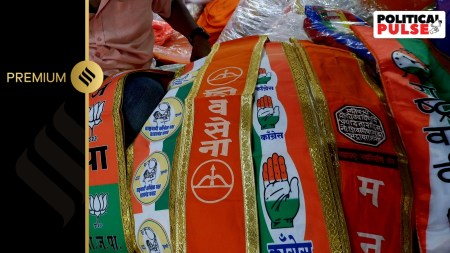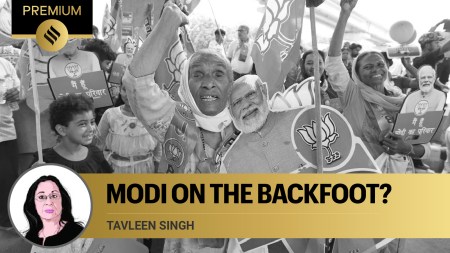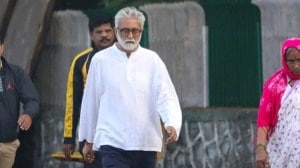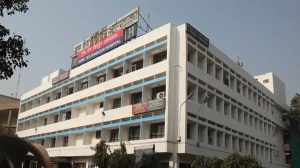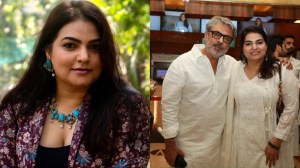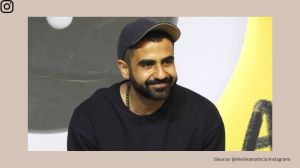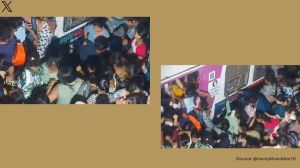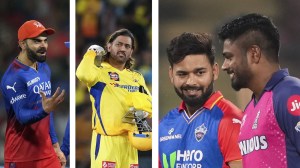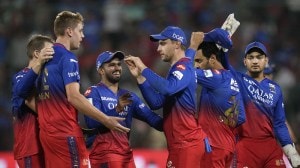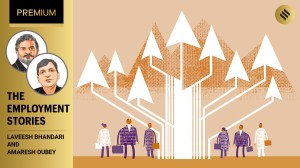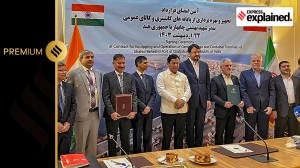- India
- International
Gay community small enough to be ignored by parties
The ruling Congress ridiculed the court’s ruling and promised to decriminalize consensual sex between adults of the same sex.
 Rizvi a script-writer and graphic designer says the polarization of India is his biggest concern in the upcoming election. March 19th, 2014.
Rizvi a script-writer and graphic designer says the polarization of India is his biggest concern in the upcoming election. March 19th, 2014.
By Kaysie Ellingson and Rosalie Murphy
For the first time, a poll has measured the Indian gay community’s political affiliation. Humsafar Trust shows that approximately 45 percent of gay voters believe Congress is “worthy of the Queer vote,” closely by 41 percent backing the Aam Aadmi Party. Just 14 percent expressed willingness to support the Bharatiya Janata Party.
But the Indian government says there are only 2.5 million gay men and women in the country. That’s less than one percent of India’s 814 million eligible voters. And compared to issues like corruption and development, gay rights are hardly priorities for the other 99 percent.
“Politicians have not given importance to this issue because it’s a very small population,” said N.P. Sathyamurthy, President and Head for Media at the DDB Mudra Max group. “It’s unfortunate.”
But after the Supreme Court upheld Section 377 in December, political parties had to address the small bloc of voters.

The ruling Congress ridiculed the court’s ruling and promised to decriminalize consensual sex between adults of the same sex.
The AAP released a statement saying it was “disappointed” with the judgment of the Supreme Court and that it “not only violates the human rights of such individuals, but goes against the liberal values of our Constitution and the spirit of our times.”
BJP member Kushal Mehra said that even though many of their leaders came out in support of the court’s ruling, the party is not against gay people. It just supports India’s court system and their rulings. “I personally am not against [homosexuality], and the party doesn’t have a view,” he said.
Mehra believes that the people of India cannot go against the courts. “It’s a democracy, and civilized people behave in civilized ways,” he said. Their candidate for Prime Minister, Narendra Modi, has not given an official statement about 377.
“Politicians are still able to get away with not talking about some of these issues,” Sathyamurthy said. “In India, the number of time spent is equally proportionate to the number of people it will effect. It might be the best of the issues to talk about, but it will only effect a small portion of people, so nobody really bothers about it.”
But, as Humsafar Trust’s poll suggests, gay Indians have interpreted the BJP’s silence as opposition.
“Once Narenda Modi becomes prime minister, I don’t know what’s in store for us,” said Smriti, a 55-year-old lesbian activist in Mumbai who declined to give her last name. “Are we going to be able to have our queer film festivals? Are we going to be able to talk in the street? That’s a very real fear for us. I think we have a tough time coming.”
Congress and the BJP are slated to get most of India’s votes this spring. And though the LGBTQ community is a small one, they may be the group to swing the election. With each party grappling for voters, their projections for the future of Section 377 may be pivotal in gaining the votes of sexual minorities in India.
Chhaya Nene and Katherine Davis contributed to this report.
In association with the Annenberg School for Journalism and Communications, University of Southern California
Buzzing Now
May 14: Latest News
- 01
- 02
- 03
- 04
- 05


